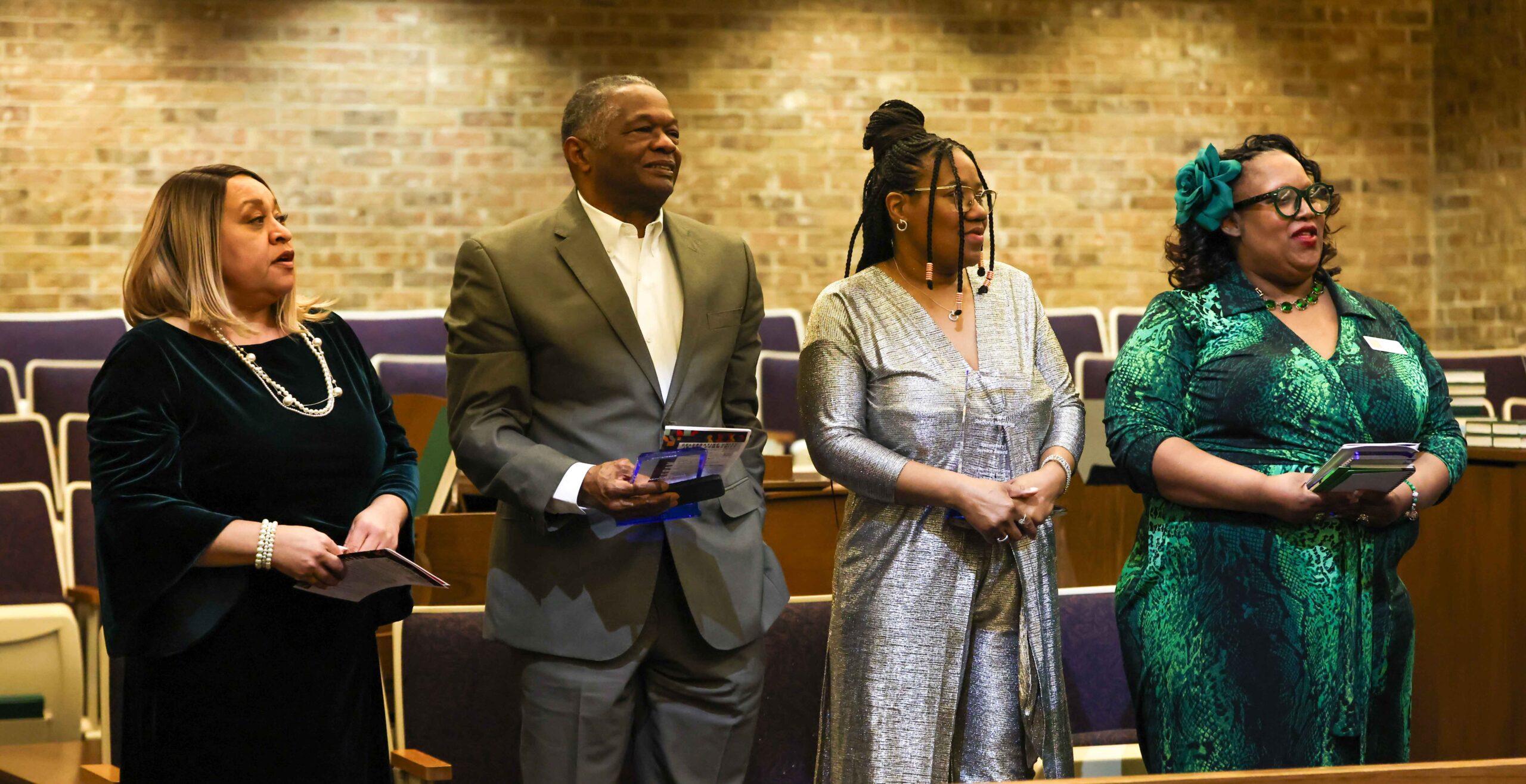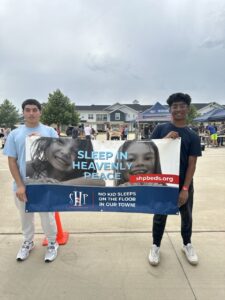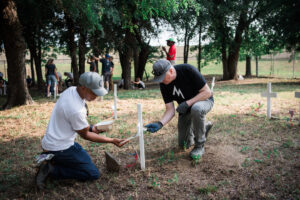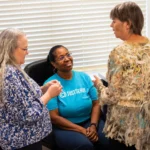Unity Dinner Honors Black History Month & Community Service Leaders
Plano, Texas (Feb. 10, 2024) – A unity dinner held Saturday in honor of Black History Month recognized the achievements of local North Texas leaders, with Mayors John Muns of Plano and Curtis Cornelious of Little Elm in attendance.
More than 250 guests gathered at The Church of Jesus Christ of Latter-day Saints for an interfaith celebration in Plano to honor the achievements of five notable African American heroes in our community.
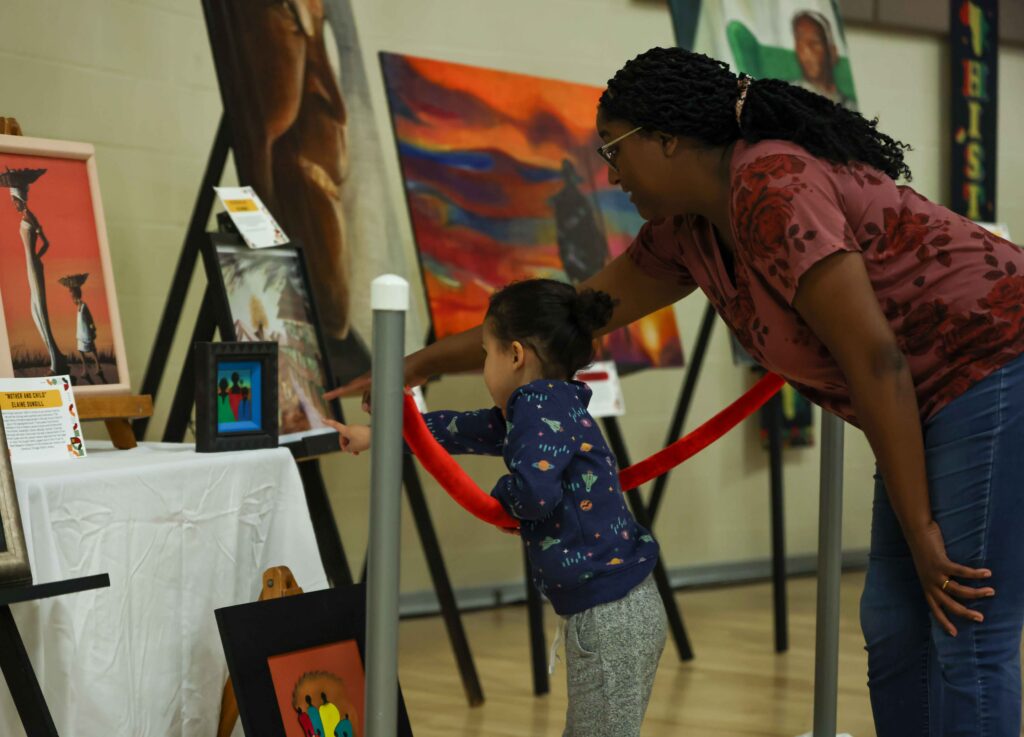
Plano Mayor Muns said, “Thank you for coming together and giving back to our community. I know this faith community, The Church of Jesus Christ of Latter-day Saints, is known for gathering people and letting us all know that we are all welcome here in Plano.”
Little Elm Mayor Cornelius said, “I always captialize the U in commUnity. Look around and see this crowd celebrating Black History Month, there is joy to my heart,”
These featured presentors shared their work and were given exemplary service awards:
-
- Jacquelyn Shaw, Westside Baptist Church
-
- LaToyia Dennis, A Chance to Learn & MOMS Tour (award accepted by her husband Mr. Dennis)
-
- James Thomas, Shiloh Baptist Church, Plano ISD, Plano ‘Citizen of the Year’
-
- Dr. Tonya Stafford-Manning, It’s Going to Be Okay
-
- Tamara Monroe, Hope Restored Missions
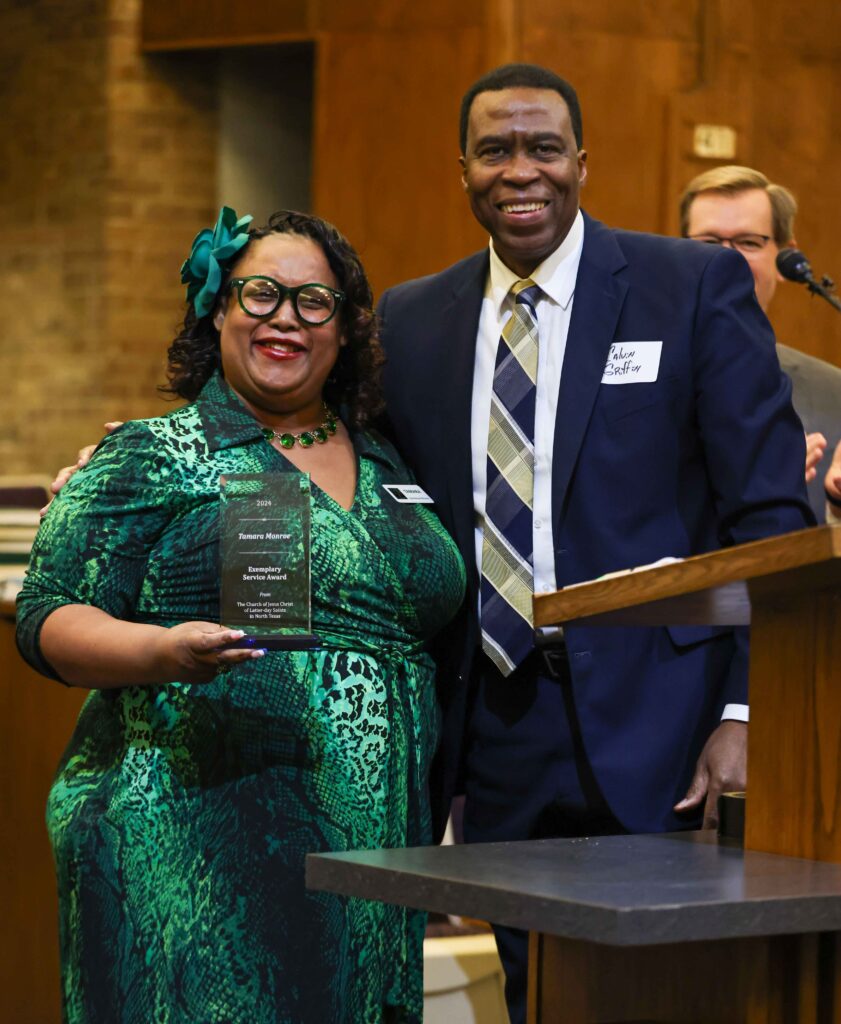
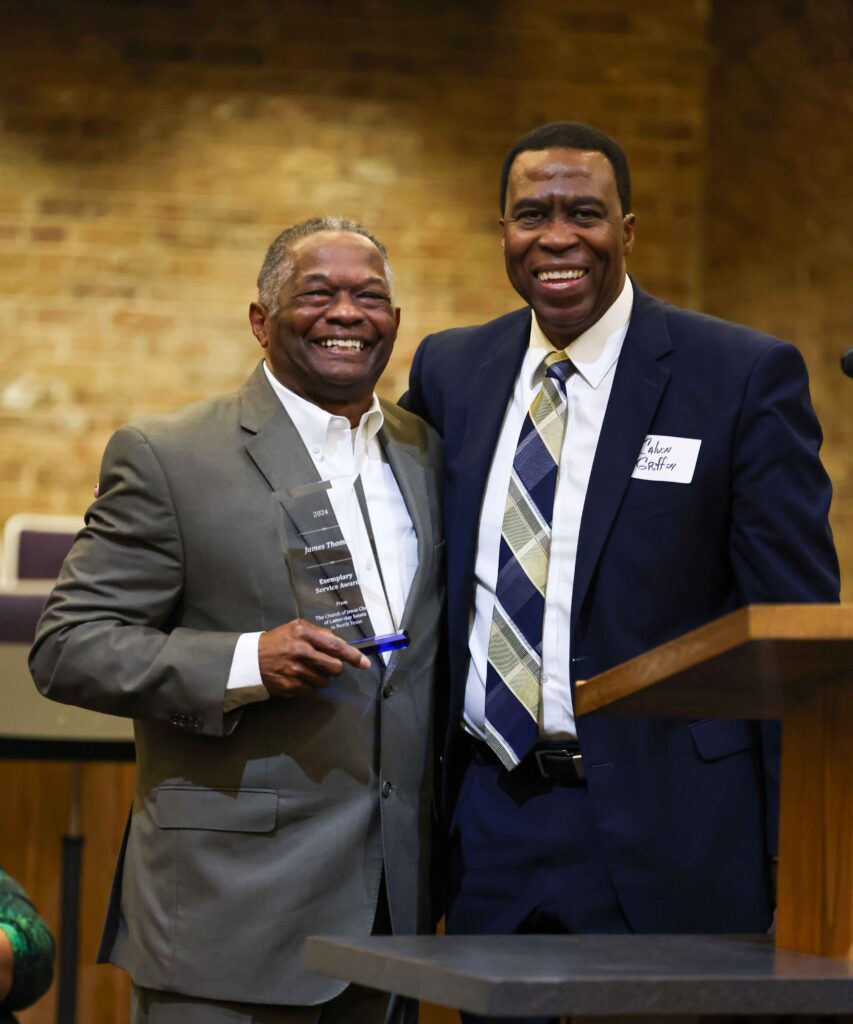
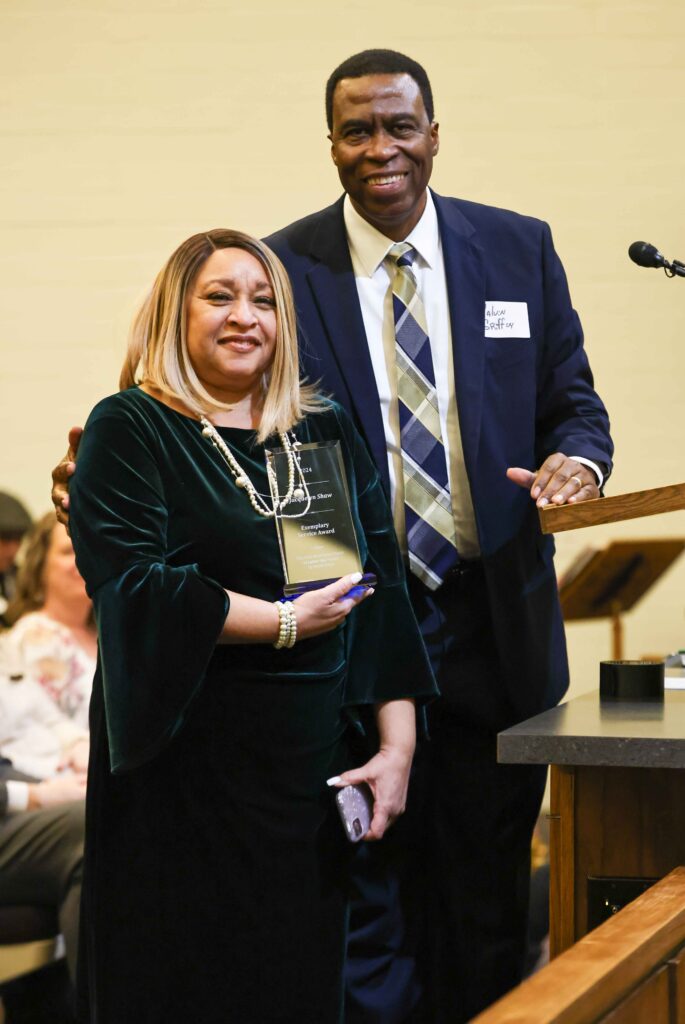
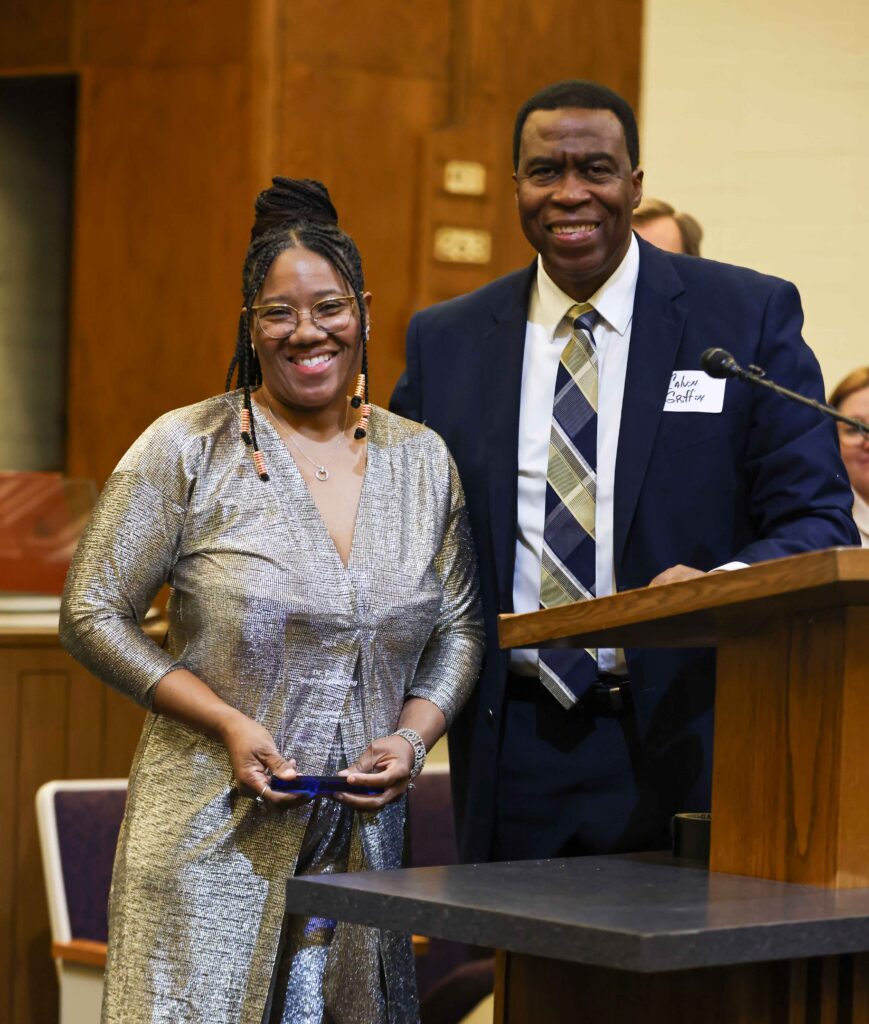
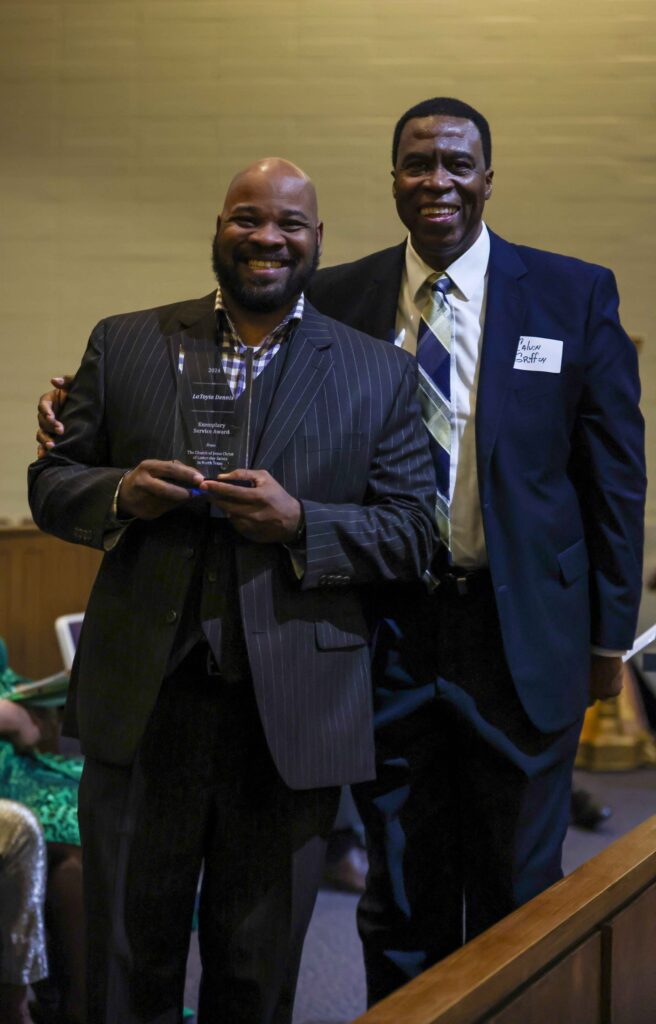
The Black History Month theme this year is “African Americans and the Arts.” An extra benefit of this dinner was to enjoy art, dance and music performed and created by people of African heritage.
Musical performances included soloist Ricky Womack, Areail Thomas singing acapella, harpist Patricia Diers. A group called “One Move” from One Community Church of Plano performed an interpretive dance routine. Patricia Diers, a member of The Church of Jesus Christ, played the harp and had a repertoire of gospel music. Brother Willie Rivers of the Shiloh Baptist Church offered the prayer.
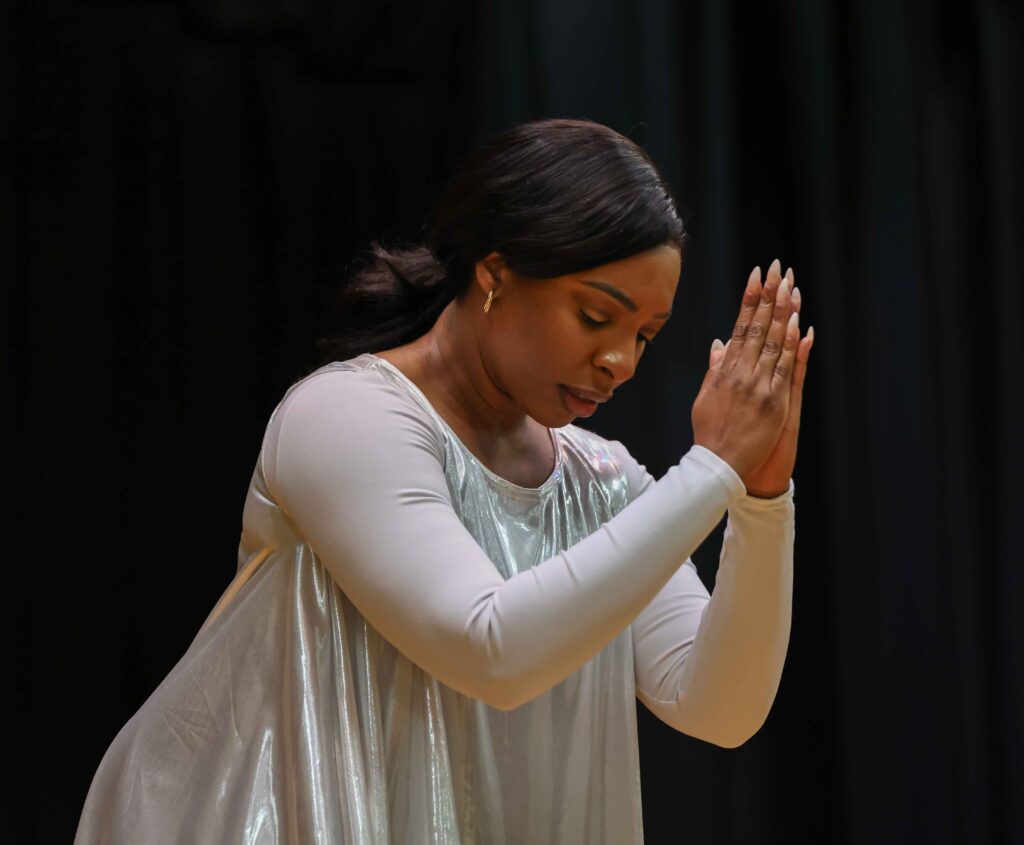
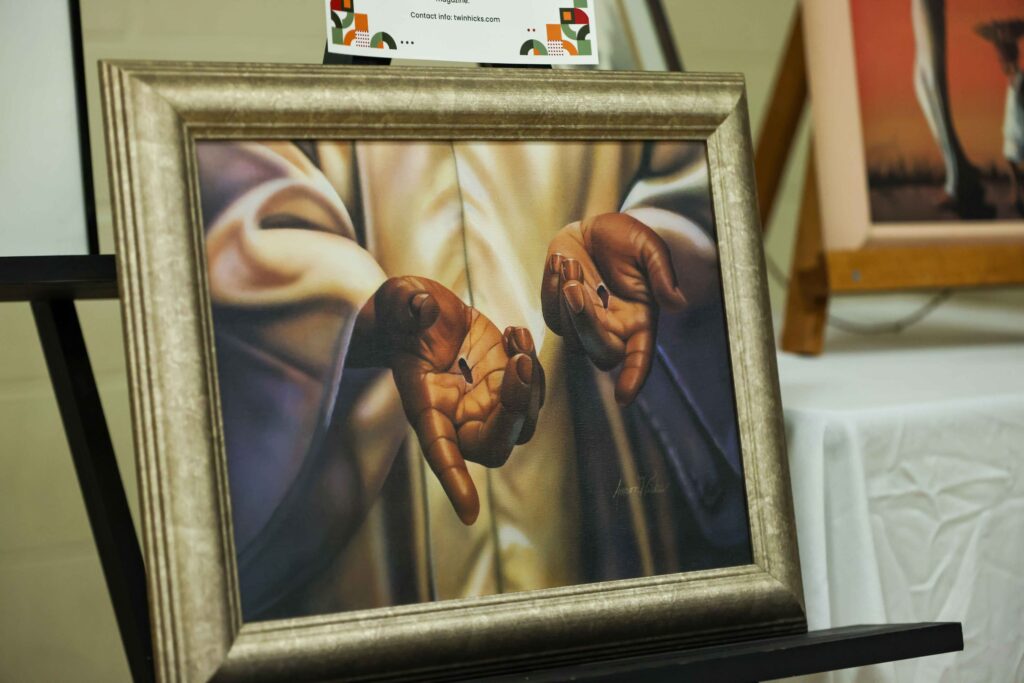
June Jenkins, Executive Director of Collin County NAACP, said “events like this help us broaden our relationships and allows those present to come to a better understanding of each other, to respect that community and to give value to that community.”
Dr. Tonya Stafford of charity ‘It’s Going To Be OK’ said, “You all are not just church folk, but God folk that show the humanity and in unity, that’s what it really means. I’m so grateful for The Church of Jesus Christ of Latter-day Saints putting their loving arms around our organization.”
“Jesus commanded us to love one another as He loves us. I want to commend these wonderful service recipients. I also want to bear my witness of Jesus Christ. I know that He lives. He can only come back when there are people prepared to receive Him. I’m grateful to these recipients and those who are examples to us all so that we may be ready to receive Him,” Elder Cannon, Area Seventy of The Church of Jesus Christ of Latter-day Saints said.
June Jenkins, Executive Director of Collin County NAACP, was also in attendance.
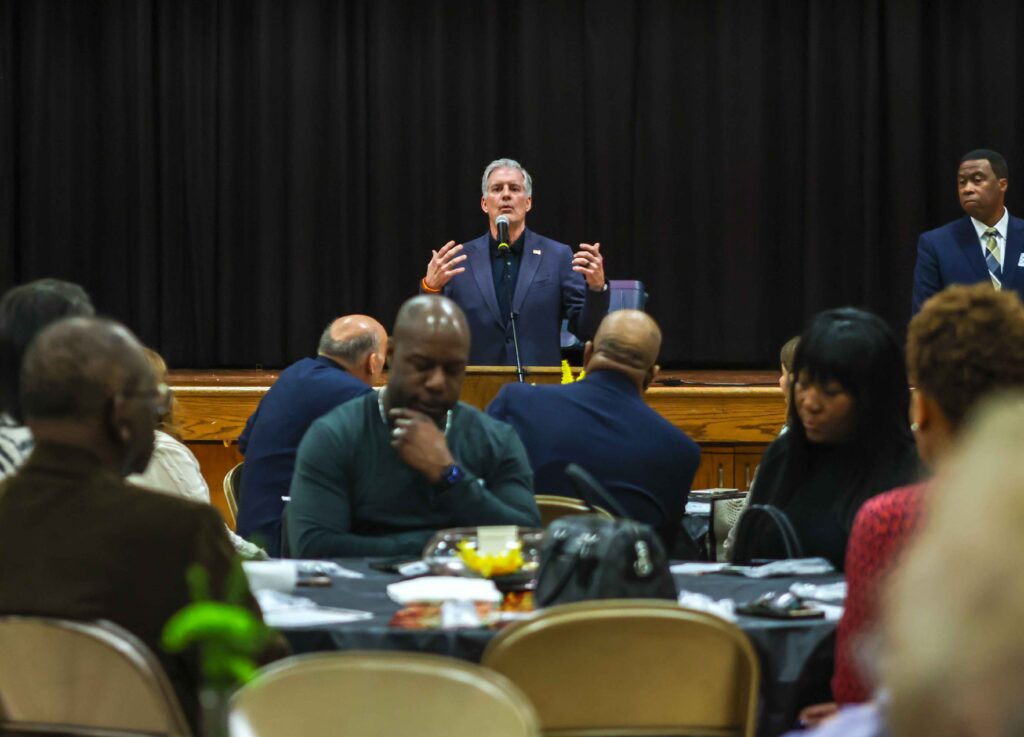
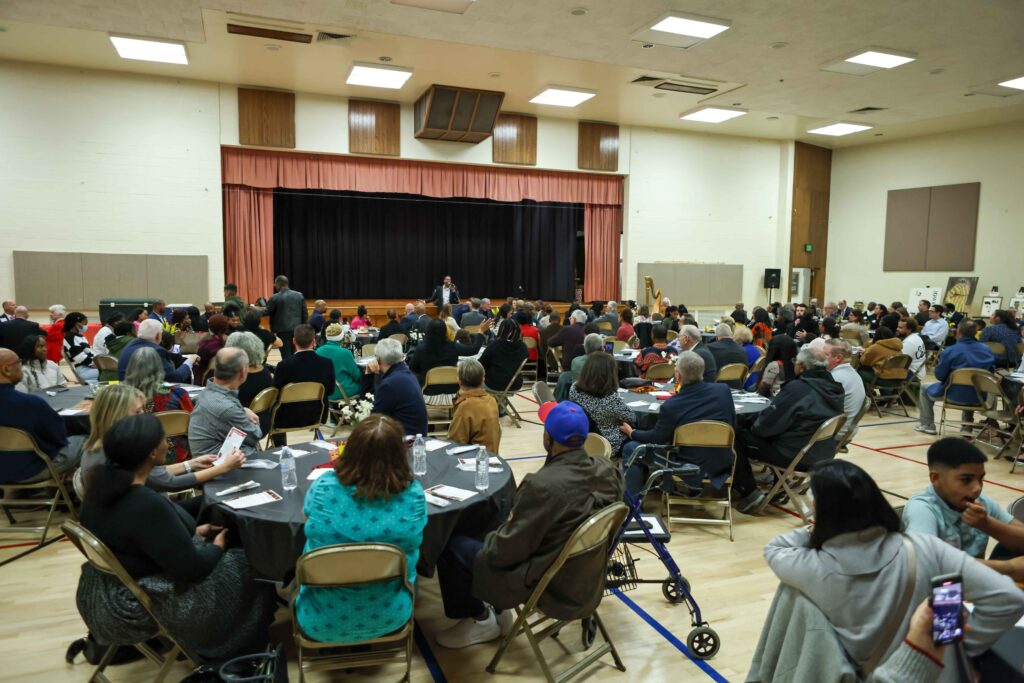
The global leaders of the 17-million member Church of Jesus Christ, and local North Texas leaders, are focused on building better bridges among our community partners of African heritage. Our President, Russell M. Nelson, interacts often with senior leaders of the NAACP, and these two organizations are now working together on several programs. In April of last year, Morehouse College in Georgia, a historically Black university, presented its inaugural Gandhi-King-Mandela Peace Prize to President Nelson, who will celebrate his 100 th birthday next September. The prize was awarded to him in part because of his heartfelt embrace of our Black brothers and sisters.
Locally, the Church has been undertaking African heritage initiatives as well. We’ve reached out as a partner to help clean up historically black cemeteries. We’ve supported multiple community programs through our volunteer system known as JustServe, and in many other ways, to work with people of African heritage. The Church is local advocates for creating opportunities to help Black men and women access historical information about their families.

